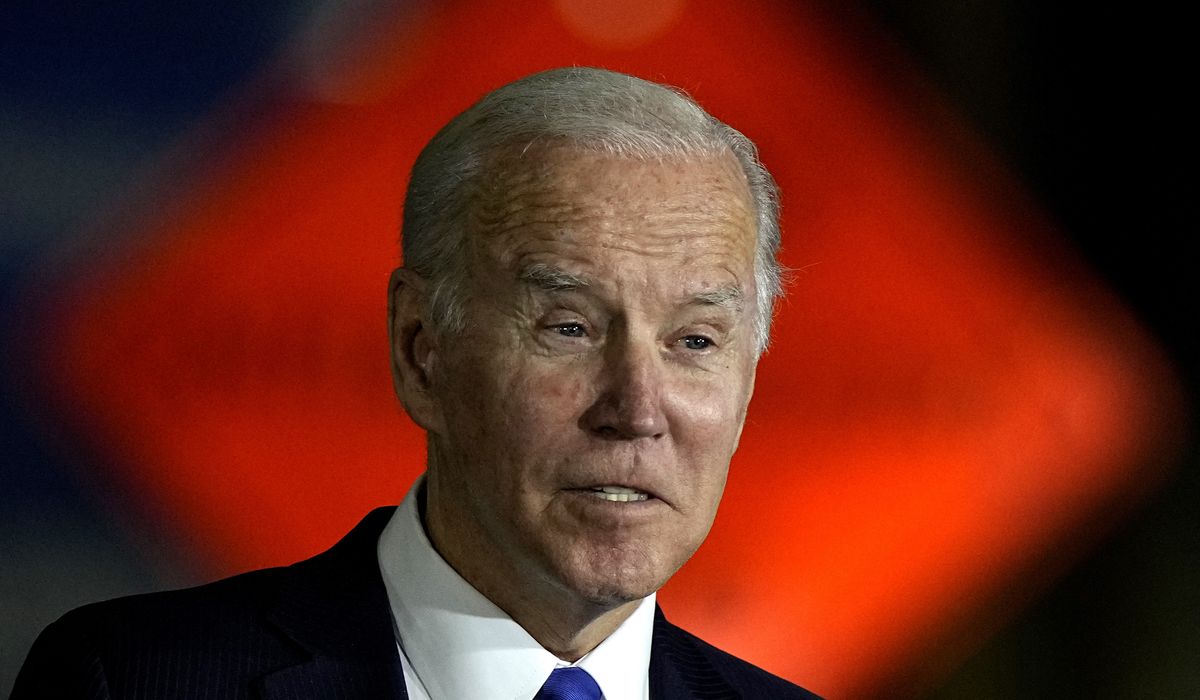
President Biden’s $65 billion program to extend broadband to poor urban and rural communities comes with a catch: Cable providers have to slash prices for the service.
Critics say it is the first step toward government price controls for the internet.
The broadband initiative in the $1.2 trillion bipartisan infrastructure plan that Mr. Biden signed into law last month wasn’t particularly controversial, garnering bipartisan support for bringing broadband to areas with subpar internet service.
But conservatives sounded alarms about requiring companies who pocket the taxpayer funds to offer customers a low-cost option, albeit possibly at slower speeds.
The low-cost plan must be cheaper than what the government determines is the price of regular plans, according to the new law.
“That’s the definition of government intrusion. Instead of letting the market set prices, we’re going to set them,” said Andrew Long, a senior fellow at The Free State Foundation, a free market tech policy think tank.
The Biden administration called the program “broadband equity.”
The decision about whether the rates are low enough will be made by the federal government, namely the National Telecommunications and Information Agency. The agency is currently headed by Evelyn Remaley, the acting Commerce Department assistant secretary of communications and information and acting NTIA administrator.
Under the program, the broadband money will go to states who will dole it out. The states also will make the initial determination of whether low-cost plans are cheap enough and if companies can offer slower speeds for those plans.
But it’s NTIA that will have the final say. Ms. Remaley would be able to rule that companies have to lower their prices even more if they want broadband money.
The federal oversight could help align rates charged from state to state, said Greg Guice, government affairs director for Public Knowledge, a left-of-center advocacy group that advocates for greater regulation of the broadband industry.
“Five southern states could decide to offer people internet service for $30 a month,” he said. “But if another state’s proposal was $70. NTIA could say, ‘Hold up, that seems a little high compared to the other states.’”
To Mr. Guice, the mandate will make it easier for more customers to be able to afford internet service at a time when the pandemic has illustrated how essential it is to be able to get online to go to school or see a doctor.
NCTA — The Internet & Television Association, the cable industry’s main lobbying group, is staying silent on the requirement.
Pushing companies to charge less than they want could backfire, however. Not only could it reduce research companies do to improve broadband service, but it could also hurt their incentive to offer broadband in more areas, according to economists.
Despite the concerns about the broadband program, the infrastructure package received the support of 19 Republicans in the Senate and 13 in the House.
Sen. Bill Cassidy of Louisiana, who was among the Republicans who negotiated the broadband portion of the infrastructure deal, did not respond to a request for comment.
Biden administration is taking other steps to exert more government control over the internet industry.
Having failed to get bipartisan support to include other progressive ideas for lowering prices in the infrastructure package, federal agencies have just gone ahead and implemented them as regulations.
Mr. Biden’s infrastructure wishlist released in March included a plan to prioritize municipalities and nonprofits such as farm cooperatives for receiving broadband funds — an idea that NCTA and other critics said would lead to spending taxpayer dollars on poorer-quality government-run broadband.
Progressives argued that access to high-speed internet has become essential to modern life and should be treated as a public utility. Having more cities and towns offer broadband would create more competition and force companies to lower their rates, they said.
The final package did not prioritize municipalities but simply made them eligible for the funds. Undeterred, the Treasury Department in September said that states, U.S. territories and tribes receiving a share of the $3.9 billion for broadband in the American Rescue Plan are expected to use the money in projects involving local governments and nonprofits.
Treasury did not respond to requests for comment.
The Free State Foundation’s Mr. Long objected to the department moving ahead despite the lack of bipartisan agreement, calling city-run broadband a “risky venture” because local governments don’t have the expertise to run broadband service.
The Agriculture Department followed in October. The agency gave states and companies preferential treatment in applying for funding in the ReConnect rural broadband program if they involved local governments in running the service and by offering a low-cost plan.
NCTA spokesman Brian Dietz said it “gives some organizations an unfair advantage which could have the effect of taking the most qualified broadband providers off the field when the end goal should be to build and deliver the best broadband service to all consumers.”
The department, he said, is “setting up ReConnect to fail in the mission of accomplishing universal broadband service across the U.S.”
An Agriculture Department spokesperson said the department wanted to create “an incentive to get the local population more involved in delivery of the broadband solution.”
